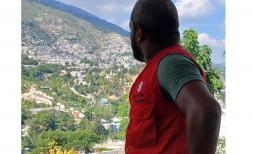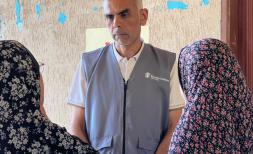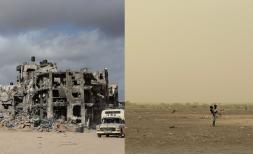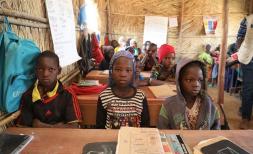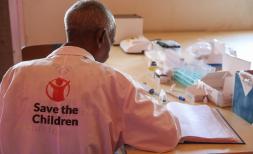Consequences of Conflict and Covid-19 on children in Sahel region
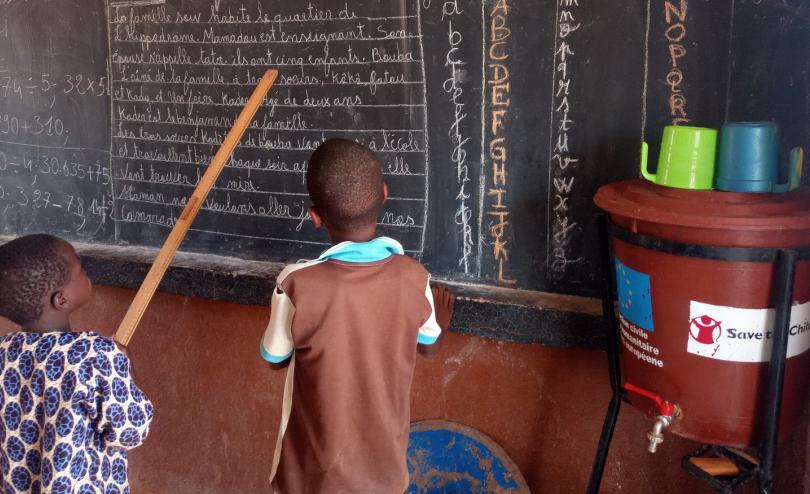
“We’re not going to get out of this. I’m not going to school, my parents are going to die, maybe I’m going to die. I don’t know what to do without school. There is no hope, no future.”
In the central Sahel region – Burkina Faso, Mali, and Niger - many children have suffered the consequences of the COVID-19 pandemic, a disease whose impact in Africa is still a worrying mystery. The above are the words of a 14-year-old girl, who lives in the central region of Burkina Faso. When I met her in July 2020, I could see the almost total despair in her face as she spoke of the closure of schools. She sobbed, repeating the question "why? why? why?"
As the tears ran down her face, she explained:
“All the schools are closed; we don’t have the opportunity to go and have fun. We are shut up at home. We have to forget about games, friends, I can’t see my teacher anymore. I feel so lonely.”
Thousands of children like her are already impacted by the precarious security situation in the Sahel, marked by attacks on schools and other serious violations against children. Even before the impact of the pandemic, more than 3,000 schools had been forced to close due to insecurity affecting over 8 million children, and more than 430 attacks against education were reported between 2015 and 2019. Today, 13 million children are out of school due to increasing insecurity and COVID-19.[1] Being deprived of a school environment not only has devastating effects on children's learning, it can also have serious consequences for their mental health, well-being and safety.
We know from research that the psychosocial toll on children whose education has been interrupted is huge. I’ve met many children who have told me they feel 'imprisoned', forced to stay at home. Despite the efforts made by the Sahelian states to respond to the pandemic through distance learning initiatives (like broadcasting lessons via radio), many children are still falling behind, as they aren’t within the coverage area or they don’t have the necessary network or devices. Some have had to engage in work to support their families who are dealing with the economic fallout from the pandemic. Children out of school are also much more vulnerable to violence, abuse and exploitation, with child marriage and forced recruitment by armed groups a growing threat. I’ve heard too many stories of children experiencing violence.
Doing the work to support children’s mental health and learning in this crisis
That’s why education, protection and psychosocial support must be prioritized in this crisis. With support from the European Union, we’re doing just this. The EU Regional Pilot Programmatic Partnership in the Sahel recognises that education with integrated mental health support is a lifesaving intervention – just as important as food and shelter. Supporting children’s social and emotional wellbeing and learning in this crisis will pave the way to better work, health and livelihoods and help them recover and build resilience.
With the outbreak of COVID-19 and the escalating violence, this project is crucial and timely. It delivers safe and inclusive learning and specialist mental health services for children from displaced and host communities. This includes running catch up lessons in specialist learning centres, providing children with essential learning materials and equipment, and training teachers, caregivers and other relevant community members on psychosocial first aid and child safeguarding so they know how to identify those in need of specialist mental health or protection support. The project also helps improve the structures and systems in place at a national level to ensure education, child protection and mental health support services are recognized as essential components in an emergency response.
Projects like this are a lifeline to the 14-year-old girl I met in Burkina Faso – and to thousands more. Working with 100,000 children and 45,000 teachers, caregivers and community members across the region, this support is crucial to protecting children’s rights and futures in this relentless crisis.
